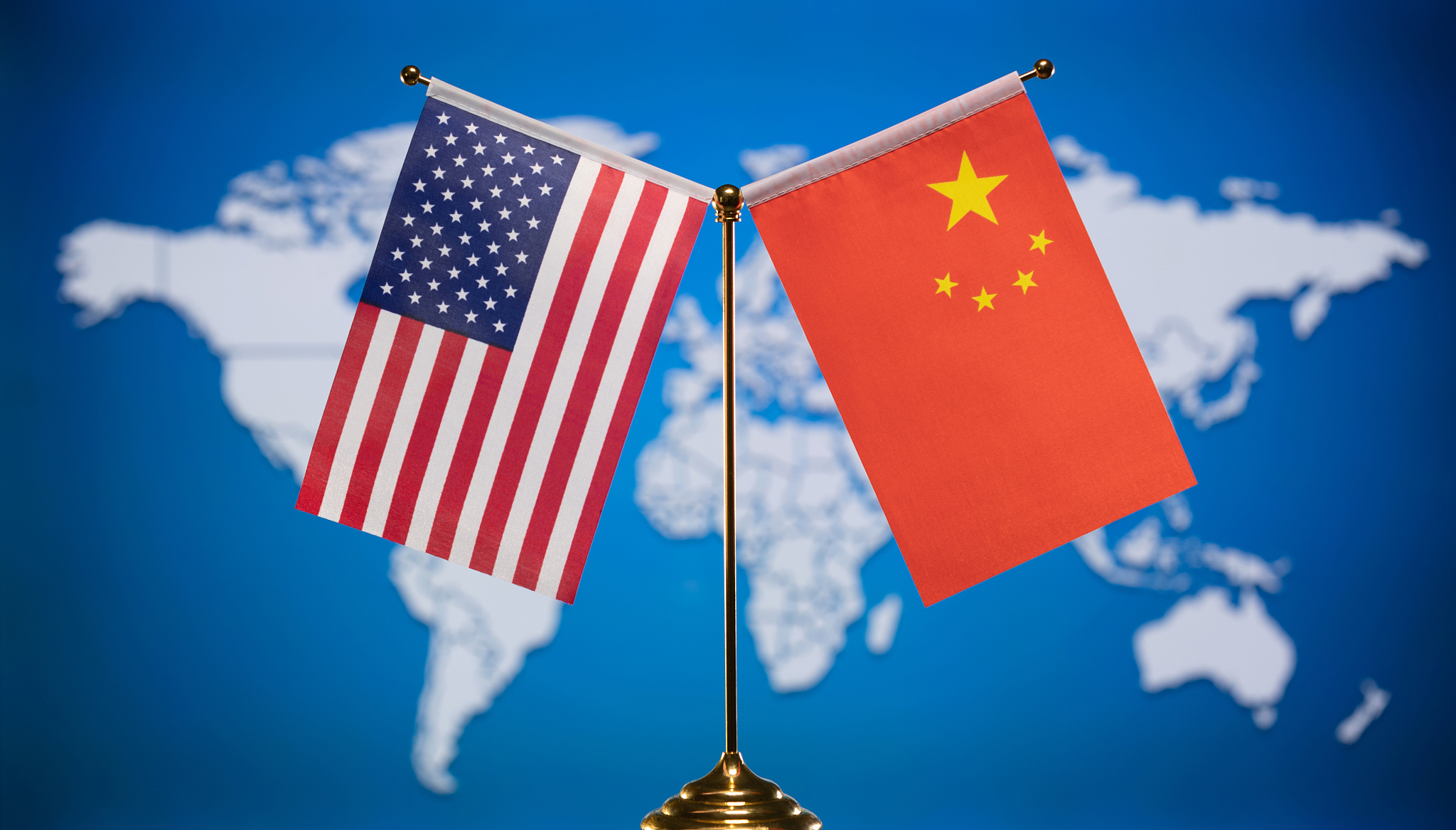
Editor's note: Farhad Chowdhury, a special commentator for CGTN, is a security and strategic affairs researcher and columnist. The article reflects the author's opinions and not necessarily the views of CGTN.
Climate cooperation has emerged as a focal point of bilateral interactions during this time of improving relations between China and the U.S., and it is partially contributing to an increase in exchanges ahead of the upcoming COP28 summit in the UAE. In an effort to manage disagreements and establish consensus, China and the U.S. have undertaken climate change negotiations.
U.S. Special Presidential Envoy for Climate John Kerry traveled to China in July this year. It was generally believed that his visit would reduce tensions between the two countries by promoting climate cooperation. Following John Kerry's visit, China-U.S. climate diplomacy had been almost dormant for recent months until California governor Gavin Newsom's recent visit to China revived it. The recently concluded 10th Beijing Xiangshan Forum also underscored the need for cooperation between China and the U.S. to address global issues like climate change.
During his week-long tour to China, Newsom visited a wetland nature reserve, an offshore wind farm, Shanghai's Tesla gigafactory, and Shenzhen's fully electric bus fleet. He signed a memorandum of understanding (MoU) with Shanghai. The pact seeks to strengthen collaboration in the areas of renewable energy development, environmental protection, and climate change adaptation. International climate organizations, including many Chinese and American ones, have expressed good feelings towards the MoU. That is the best illustration of Newsom's emphasis on climate cooperation.
The possibility for collaboration in green development and environmental preservation was shown by Newsom's visit to China. In his visits to China's two business centers, Shenzhen and Yancheng, he underlined the need for increased dialogue and exchanges between the two nations in order to foster practical cooperation and lessen miscommunication.
The fact that the climate problem is one of the topics on which China and the U.S. can have an open dialogue is both accurate and vital. China and the U.S. should put their differences aside to address climate change. The U.S. needs to set aside its geopolitical disagreements. Beijing and Washington should demonstrate how to defeat their shared foe in practice.
In the end, bilateral comprehensive connections would be strengthened via this kind of climate collaboration. Global political collaboration may be built on the China-U.S. climate partnership. Governor Gavin Newsom therefore called for China-U.S. collaboration on climate change mitigation. For the sake of both nations, as well as the global community, China and the U.S. should continue their climate change dialogue.
Given Newsom's moderate stance, China and the U.S. can redefine their diplomatic ties and assume a leadership role in combating global warming via climate cooperation. Sincerity in the U.S.'s approach to the climate change problem may encourage collaboration rather than rivalry. Prominent academics and officials from many countries and international organizations have been expressing great appreciation for China's efforts in the fight against climate change. China has pledged that it will strive to peak carbon dioxide emissions by 2030 and achieve carbon neutrality by 2060. The problem of climate change would be less complicated if developed countries, including the U.S., followed China's lead and took responsibility for their actions.

Seascape in Sanya City, south China's Hainan Province. /CFP
Seascape in Sanya City, south China's Hainan Province. /CFP
For example, China's Blue Circle environmental initiative was awarded the 2023 Champions of the Earth award by the United Nations Environment Program (UNEP) for its unique marine plastic treatment technology on October 30. The Blue Circle initiative may be a key player in global initiatives to save marine habitats and advance sustainable practices by disseminating its techniques and findings to a large audience. It will undoubtedly be a meaningful green collaboration if China and the U.S. work together to combat marine plastic pollution in the Pacific Ocean by exchanging ideas, expertise, and information.
Across the U.S., Australia, Brazil, and many other countries, wildfires are still raging due to the high temperatures. Environmental cooperation benefits both bilateral relations and the stability of the global climate. The zero-sum game will not provide as many good advantages as the win-win China-U.S. interactions.
Nonetheless, enhancing global climate governance and developing China-U.S. climate diplomacy depend on the two nations continued open communication. Keeping lines of communication open on climate change would not only help to avoid disputes but also promote cooperation, which is good for both countries and the global community. U.S. removing barriers on Chinese solar goods, and green products and fostering more mutual trust in climate cooperation are critical to the implementation of climate cooperation. The U.S. should provide advantageous circumstances for collaboration and cooperation in these certain sectors to produce significant outcomes.
China is a major producer and investor in green energy. The growth of green energy in rural areas via innovation and the promotion of scientific and technology cooperation between China and the United States are priorities. To confront the urgent threat of climate change, the U.S. should work with China to expedite climate cooperation and learn from China's successful use of renewable energy.
To bring all nations together and guarantee that global climate policy is headed in the correct direction, it is envisaged that the upcoming COP28 would uphold the objectives, tenets, and institutional structure of the Paris Agreement. All parties involved –including China and the U.S. – should plan routes to bold agreements and measures. The United States and China should collaborate to provide the ideal environment and climate for China-U.S. climate cooperation, as they both contributed to the completion and implementation of the Paris Agreement.
The international community, businesses, and local communities in both countries would benefit from proper cooperation in light of the "China-U.S. Joint Glasgow Declaration on Enhancing Climate Action" and the "China-U.S. Joint Statement Addressing the Climate Crisis" to achieve sustainable economic growth and global improvements in climate governance.
(If you want to contribute and have specific expertise, please contact us at opinions@cgtn.com. Follow @thouse_opinions on Twitter to discover the latest commentaries in the CGTN Opinion Section.)



